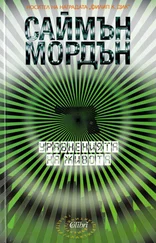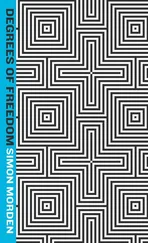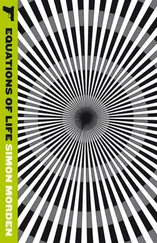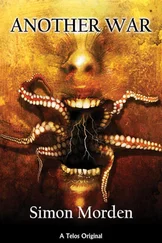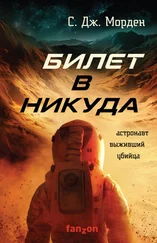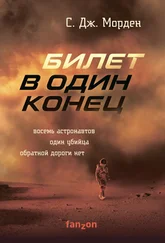She shifted slightly, and the weight shifted with her, slow and large.
She couldn’t sit there all day. She couldn’t avoid whatever it was. She had no weapons, but she did have magic. What good that might be against something that held her so close without her noticing until now was only ever going to be a guess.
She opened her eyes and turned her head slightly, her gaze falling on the frayed strap of her top, her bruised brown skin, the slope of her shoulder, and the tawny ridge of feathers behind.
No hesitation now. Her head snapped around to the other shoulder, and there was another mass of mottled plumage. It didn’t matter over which side she looked, the view was identical and reversed.
She had wings.
Actual wings. Sodden, bedraggled, dripping water, but they were incontrovertibly wings. They hung off her back, still and lifeless, on her and part of her, and she couldn’t move them because she had no way of knowing how to move them. Which muscles should she flex, which part of her brain should she spark to trigger that? She knew how to move her fingers, her toes: she just thought about it, and it happened. But wings?
How did she even get wings? Where did they come from, and what did they mean? Was it what Crows said, about doing too much, too soon? Had she become so infested with magic that it was breaking out, changing her without asking, taking her over.
She didn’t know if she should be scared or not. She’d grown wings because… she’d wished for them. Trapped on the mountain with only an angry dragon for company, with a sheer drop behind her, she remembered what she’d thought, what would have helped at that moment. If she could have flown.
And now she had wings. She didn’t know if that meant she could fly. Perhaps it did, if she could work out how to use them. On the other hand, if she did, then she knew nothing about how to fly. If she’d been given a car, she wouldn’t know how to drive it any more than being given wings gave her the knowledge of how to swoop and dive and soar.
Still sitting in the pond, she forced her legs out the boiler suit, then worked it backwards over the wings until she was free of it. She felt awkward, that standing would make her overbalance. But she couldn’t just stay there. Afternoon was stretching into evening, and soon it would be night.
As well as awkward, she felt restless. She hadn’t eaten for a day, two days, maybe longer◦– however long it had taken for her to get back to the castle. She was battered and bruised and bewinged, but she was also hollow.
Gripping the side of the pool, she got herself to crouching. Then slowly, slowly, she stood, more water pouring from her, giving her goosebumps as it evaporated away. She felt the wind catch the feathers behind her, and she shivered.
Her wings flexed, and tugged against her. She splashed her feet, scrabbling for stability, and after five or six steps, was able to stand mostly upright again. Gingerly, she lifted a leg over the edge of the pool, then the other, and she was on the pavement, leaving damp footprints trailing up to the door.
She was getting used to it, to them. There was nothing to it, really, just a difference in her gait, a change in her posture, a slight delay in her turn. She’d have to open the door wider. That was fine, too.
Wings. She had wings. Her breath caught in her throat, coming out like the first sob. She’d wanted this◦– not this exactly◦– but this: to bend the world to her will. It had always been coldly inflexible before, uncaring, unresponsive to her wants and wishes. Now Down was giving her her dreams in a piecemeal, overgenerous way that didn’t make any sense and wasn’t controllable.
She could snap her fingers and light fires. She could drag light and dark out of thin air. She could weave the natural world around her for camouflage and for weapons. A castle was growing out of the ground to her unbidden command.
No one had said Down was safe. It was the ways in which it was unsafe that confounded her. Friends that turned out to be enemies, she could understand. Growing wings was incomprehensible.
She could ignore that for the moment, despite the ever-present weight on her back. The first thing she did was check the little room she’d slept in for the map she’d drawn. It had gone, taken by Crows.
Of course it had. Maps were power and wealth. Why did people tell her the truth and then betray her with those same truths? Because they could. Draw a map, said Crows, put everything down that you remember. How stupid could she be? He’d told her exactly what he was going to do, and she hadn’t even noticed, in the same way that the wolfman had: in Down, there was no one to stop you doing whatever you wanted. She hadn’t asked, what if you wanted to be very wicked?
So the map had gone. She could make another one, with the right materials, which inevitably had gone too, with the rest of Crows’ supposed hoard of knowledge. It became more of a question of what he’d left than what he’d taken.
The candle was still on the table, and she lit it almost casually, even though the act itself was extraordinary. There was grain, which she could boil, but there was also a cake of something dark and heavy and sticky. She licked her fingers and tasted the dense flavours of sweet, rich fruit, dried and compressed into a single solid block.
Which she tore into, pulling and clawing, and when that wasn’t fast enough, picking up and worrying chunks out of it with her small white teeth.
What was she doing? She put the pressed fruit down on the table and backed away like it was something live and dangerous. She spat out what was already in her mouth and not yet down her throat or her front. She liked sweet stuff, but not that much, not that intensely. Yet she could see her fingers glistening and had the overwhelming urge to suck the syrup off them.
She made a conscious effort to stop herself. Boiling the grain up, making a porridge, it would take time. She could do that: she didn’t have anything else do. Crows wasn’t around, and judging from what was missing, he wouldn’t be coming back. This was her castle now, and it certainly seemed to be responding to her presence by becoming more complete. She filled a metal pot with grain, listening to the way they bounced against sides, and carried it outside to fill it with water.
The sun was setting, and the sky was turning purple with dusk. The crows were coming back to roost, their black shapes wheeling above her and around the incomplete tower. They called to her, and she watched the way their wings snapped and flapped as they turned.
She felt a longing, a terrifying ache, that told her she should be up there, with them, and not concerning herself with such mundane things as cooking. Birds didn’t do that; they lived off the wild bounty of the world.
She clenched her fists and closed her eyes, and the feeling passed.
Crows had piled up firewood and set the pot over it. She tried to copy what he’d done, but inevitably she was unpractised, and she hadn’t been paying that much attention. The wood, she could find, stacked away in another room, but it came with no instructions on how much to use or how to lay it out. She guessed, and caught it alight by willpower alone. When the first flames had died down, she dropped a scorched, sooty flat stone into the middle of the fire, and carefully placed the pot on top of it.
The heat reached her, and made her shy away, her feathers trembling. The pot settled on the stone at an angle, but it didn’t spill. She’d need to remember to pad her hand when she retrieved it later. When she looked up, the crows were still circling and calling. It would take a while for the grain to cook down. Time enough to climb the tower.
She tried to resist. She tried so very hard. But wrestling with her compulsions was harder, and she was exhausted and confused, and in no state to feel strong. She gave in. She almost ran. Back inside, up the steps, past the room she’d entered previously because that too was now enclosed by timbers stretching overhead and boarded out. The steps, where they’d petered out into space now carried on, and so did she.
Читать дальше
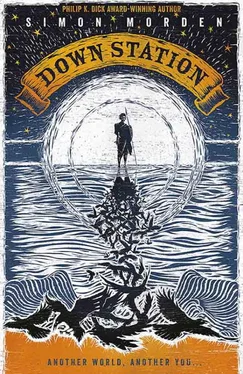
![Саймон Морден - Билет в никуда [litres]](/books/388091/sajmon-morden-bilet-v-nikuda-litres-thumb.webp)
![Саймон Морден - Билет в один конец [litres]](/books/395533/sajmon-morden-bilet-v-odin-konec-litres-thumb.webp)


